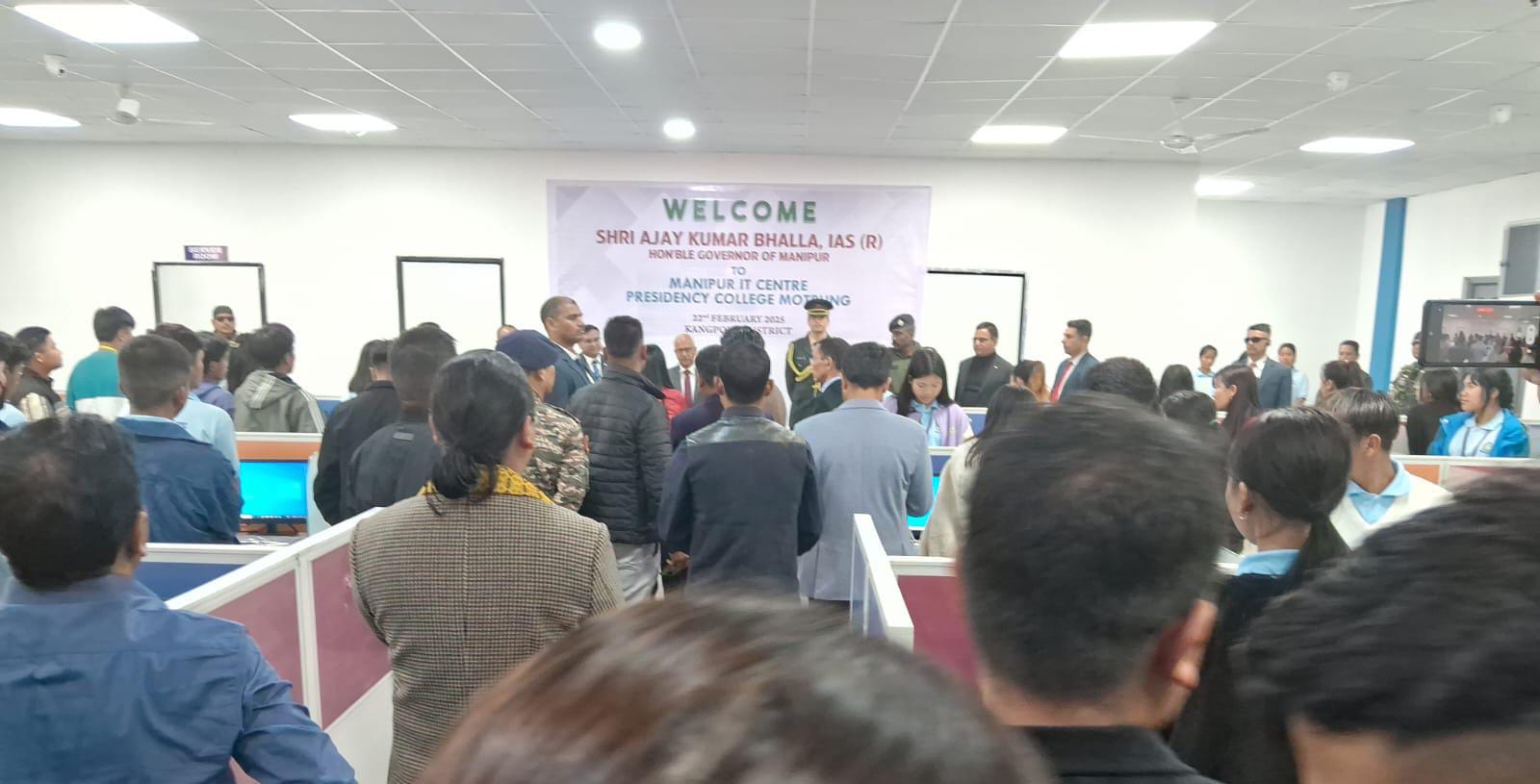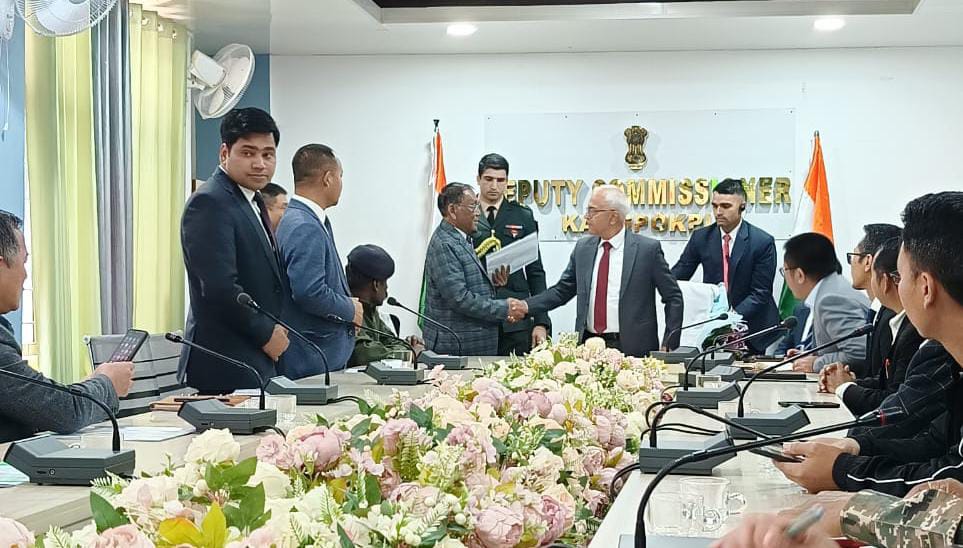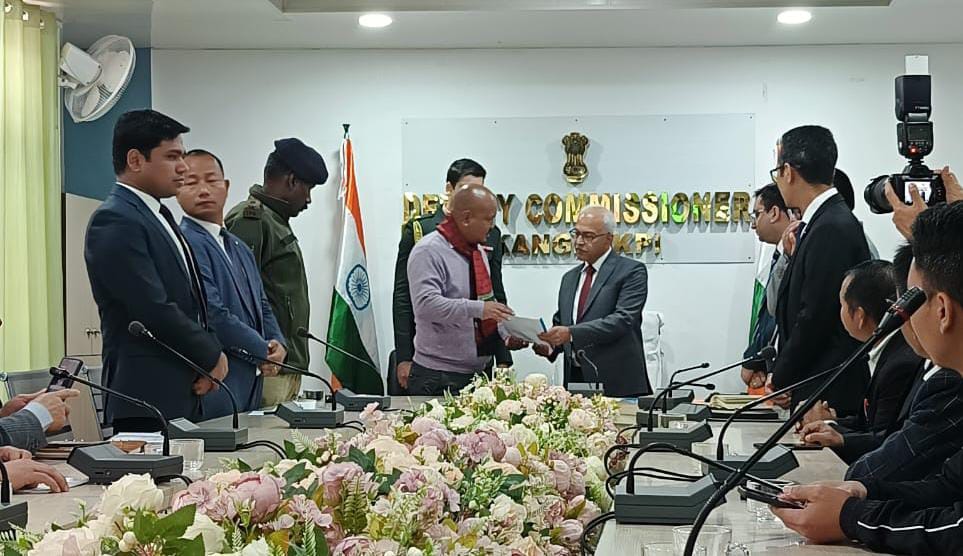
In a significant move, Manipur Governor Ajay Kumar Bhalla visited the conflict-hit Kangpokpi district today, marking his first trip to the region since assuming office. The visit underscores the government’s renewed focus on addressing the concerns of the Kuki-Zo community amid ongoing ethnic tensions in the state.
Breaking from tradition, Governor Bhalla has chosen to operate from the state secretariat rather than the Raj Bhavan, signaling a hands-on approach to governance. During his visit, he inaugurated a state-of-the-art IT Centre at Presidency College, Motbung, a step aimed at fostering digital education and expanding opportunities for local youth.
Upon his arrival at Motbung Model Village, the Kuki-Zo community welcomed the Governor warmly, reflecting both high anticipation and a strong desire for dialogue.
Later, Governor Bhalla proceeded to the Deputy Commissioner’s Office, where he met with key Kuki-Zo civil society organizations, including the Kuki-Zo Council (KZC), Kuki Inpi Sadar Hills, and Thadou Inpi - General Headquarters. In the presence of district officials, including the Superintendent of Police, Kangpokpi, these organizations formally submitted a memorandum outlining their pressing demands and concerns.

The Kuki-Zo Council (KZC), in its memorandum, highlighted the dire humanitarian crisis and unresolved political issues affecting the community. Their appeal comes amid continued ethnic unrest in Manipur, which has left thousands displaced and struggling for survival.
Representing the Kuki-Zo people, the memorandum underscores the devastating impact of the 22-month-long ethnic conflict, citing loss of lives, destruction of homes and churches, and mass displacement. The KZC leaders urged the Governor to take swift action, especially in the absence of a political resolution regarding their demand for a separate administration under a Union Territory with a legislature.
The memorandum also details district-wise challenges in Chandel, Churachandpur, Kangpokpi, Pherzawl, Jiribam, and Tengnoupal, calling for urgent intervention.
Meanwhile, the Kuki Inpi Sadar Hills (KISH) also submitted a memorandum to Governor Bhalla, urging immediate intervention on key issues affecting the Kuki-Zo community in the wake of the ongoing ethnic conflict.
The memorandum highlights four critical demands:
Expansion of air connectivity to key locations like Moreh, Lamka, and Dimapur for better access to essential services and strict monitoring to ensure the services benefit the people who need them most.
The Kuki-Zo leadership has emphasized that these demands are not just requests but urgent necessities to ensure safety, dignity, and self-determination.

With tensions still high and thousands displaced, KISH President Thangminlen Kipgen has urged Governor Bhalla to take swift action in addressing these pressing concerns.
"The survival of the Kuki-Zo people depends on the government’s willingness to recognize our needs and act without delay," Kipgen stated.
As the Kuki-Zo community continues to suffer in the wake of prolonged conflict, their leaders are pressing for immediate action from both the Governor and the Central Government. The demands for security, infrastructure, and political autonomy are expected to be a major test for Manipur’s administration in the coming months.
Will the Governor’s intervention bring meaningful change, or will the grievances of the Kuki-Zo people remain unanswered? The response from the authorities in the coming days will determine the region’s path forward.

The Hills Journal
K. Salbung, Churachandpur
Manipur-795128